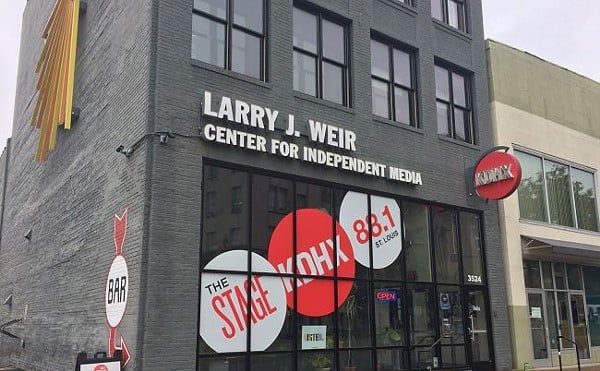Lester Bowie had a simple, profound philosophy, one that drove all of his work: "All's fair in love and war ... and music is both ... so use anything, as long as it works." His father, a music teacher, taught him the trumpet at a young age, and Bowie in his early professional years performed with R&B players. His discovery of Louis Armstrong altered his musical direction, and soon after, Bowie, along with St. Louis kindred Oliver Lake, Julius Hemphill and Floyd LeFlore, helped formed the Black Artists Group (BAG), an influential consortium that helped define the free-jazz movement.
Bowie moved to Chicago in 1965 to work with St. Louis singer (and future wife) Fontella Bass. He joined the Association for the Advancement of Creative Musicians (AACM) the next year and soon thereafter, along with fellow AACM members Roscoe Mitchell, Joseph Jarman, Malachi Favors and, eventually, Famoudou Don Moye, founded the profoundly important Art Ensemble of Chicago.
Whereas a general conception of free jazz closely resembles the idea of random chaos, Bowie and the Art Ensemble (who released their Coming Home Jamaica just last year) dived headfirst into the idea of pure freedom as musical expression, an idea that didn't necessarily include freedom from the constraints of rhythm. "People think that free jazz means no melody," he said last year, "no rhythm, no time, no structure. Free jazz means I'm free to play any fucking thing I feel like playing. If I wanna play Patsy Cline one minute and Billie Holiday the next, I can do it. I can do anything in my mind; that's my job. I'm a musician, and I only follow what I wanna do."
Bowie's gift was the ability to tether this freedom to a sensibility that understood that restraint is an aspect of freedom as well. On his most magical recordings (check out the recently reissued American Gumbo (32 Jazz), a double CD comprising his mid-'70s albums Fast Last! and Rope-a-Dope), Bowie sprints from a stall to overdrive on a whim and still maintains his earthy tone -- a tone you can hear when he squawks just as easily as you can when he's melting a note. There's no better indicator of his respect of the philosophy of freedom than his most recent solo album, last year's The Odyssey of Funk and Popular Music, Vol. 1 (Atlantic). On it, he performed music by -- get this -- Tim Rice and Andrew Lloyd Webber, the Spice Girls, Marilyn Manson, Cole Porter, Notorious B.I.G., Puccini, Harold Melvin and the Blue Notes, and brother Joseph Bowie. That's freedom, and it's something he not only lived but taught: Recently he was spending some of his time teaching music to Vermont kindergartners; he was also a Yale fellow, as well as a visiting professor at Harvard.
Lester Bowie leaves behind one of the most important bodies of work of any St. Louis artist, living or dead; his philosophy, as well as that tone, will be missed.





